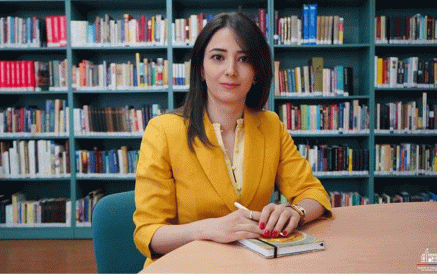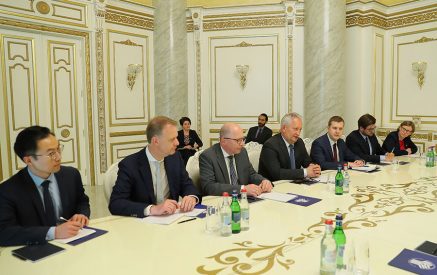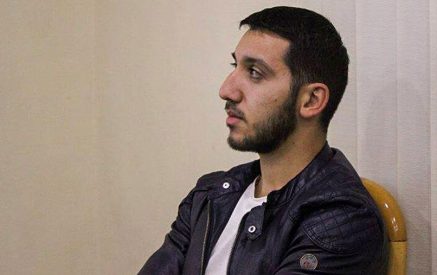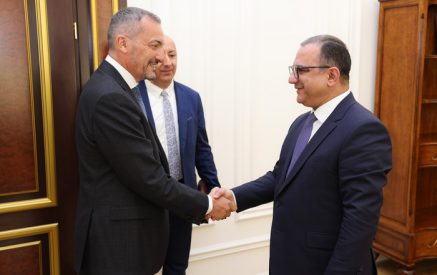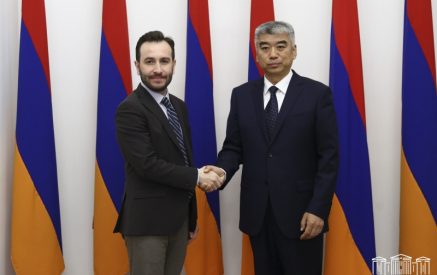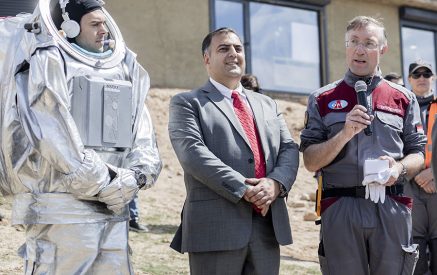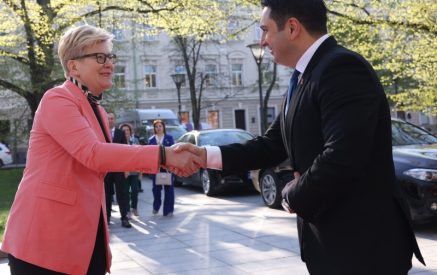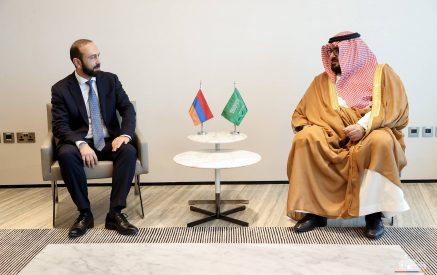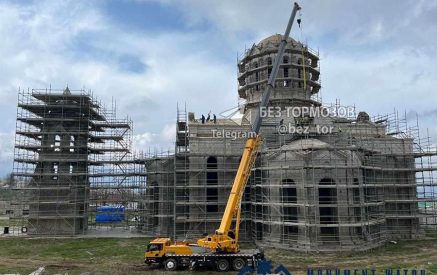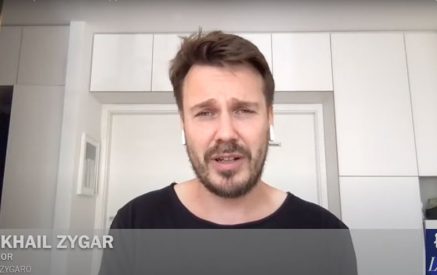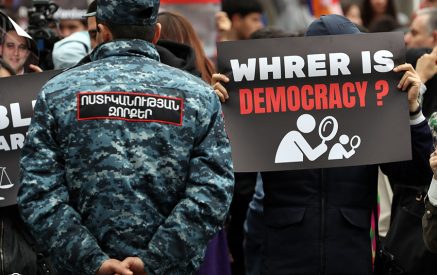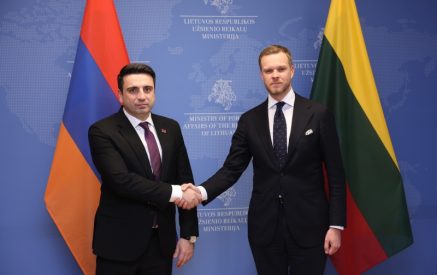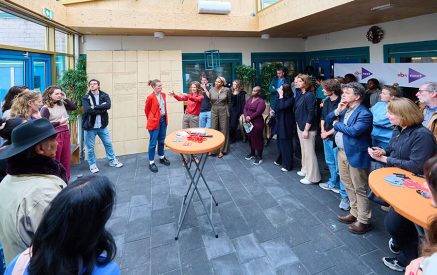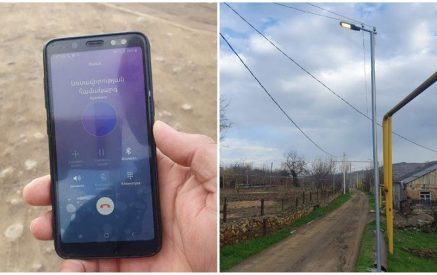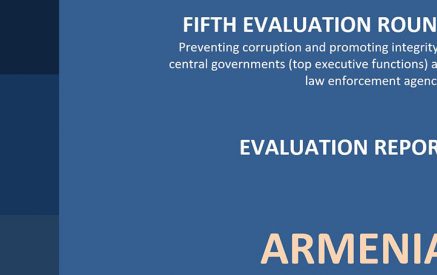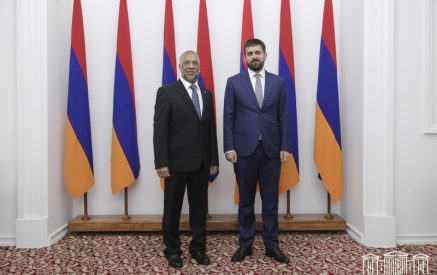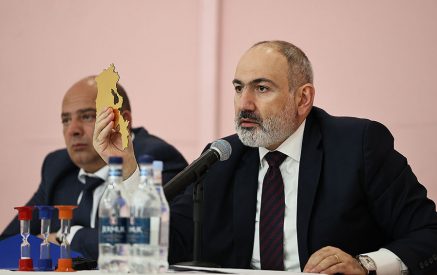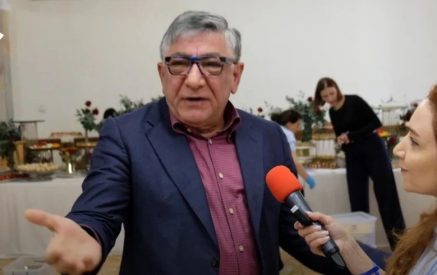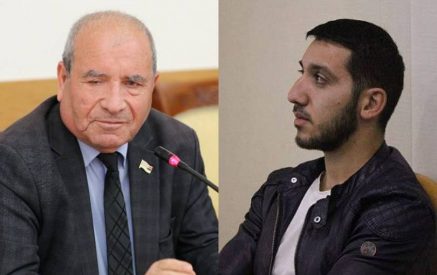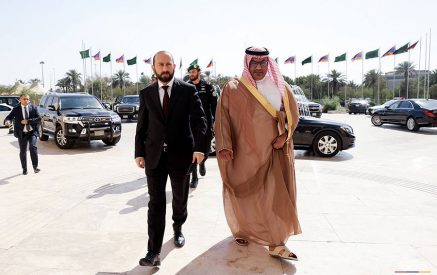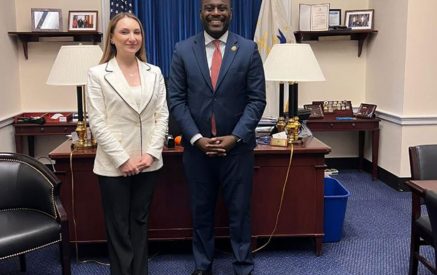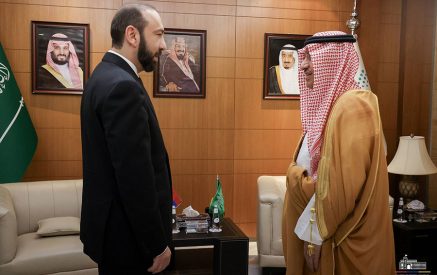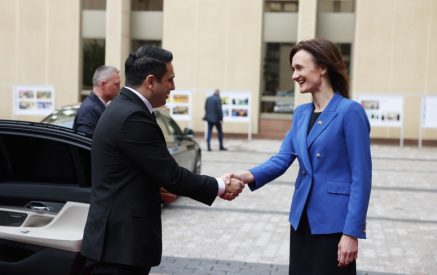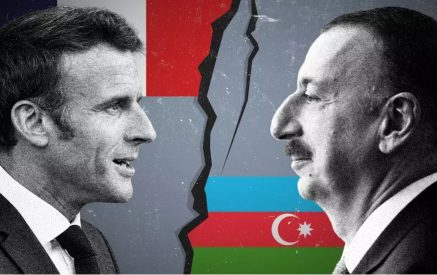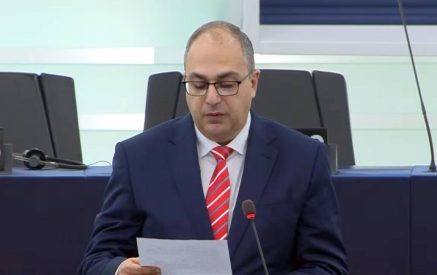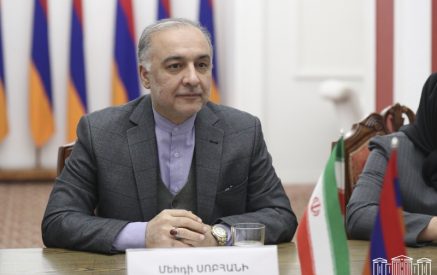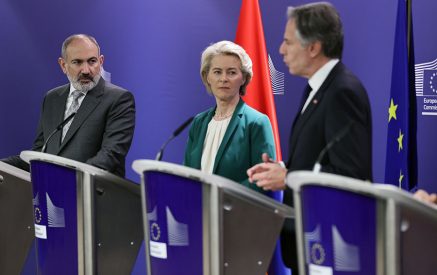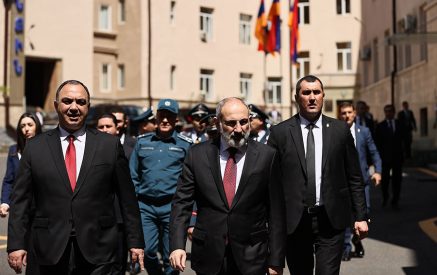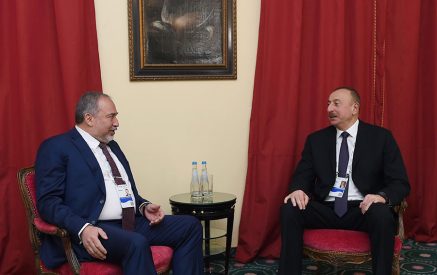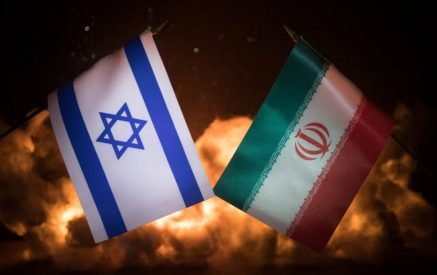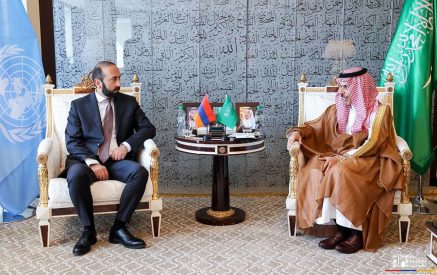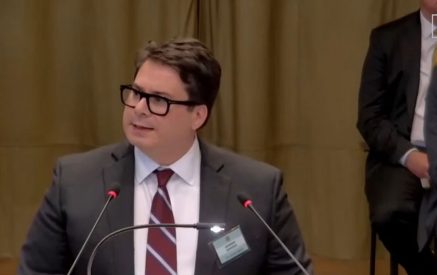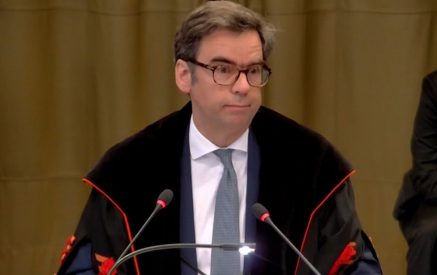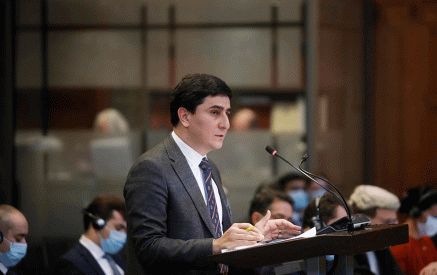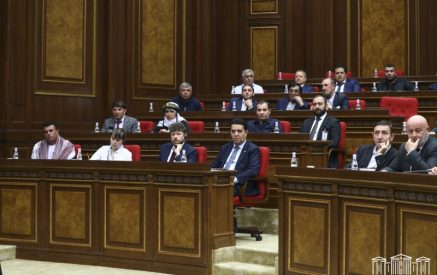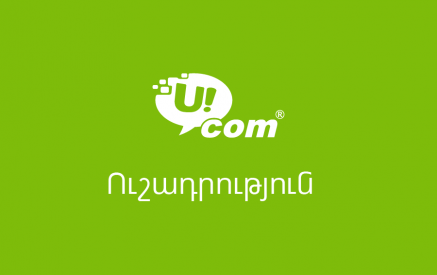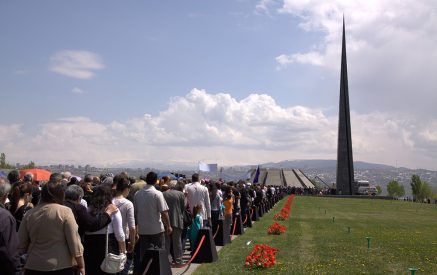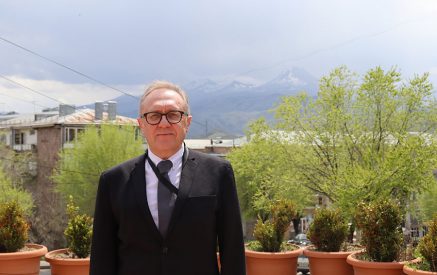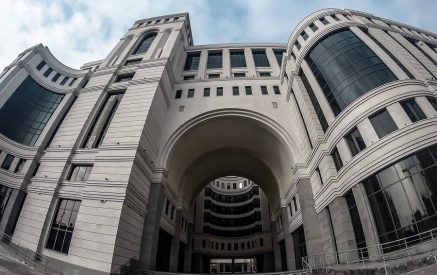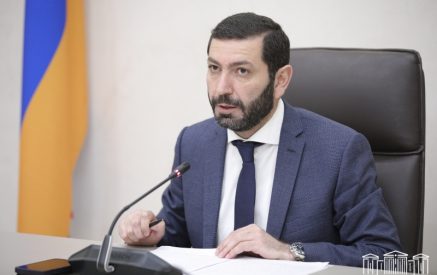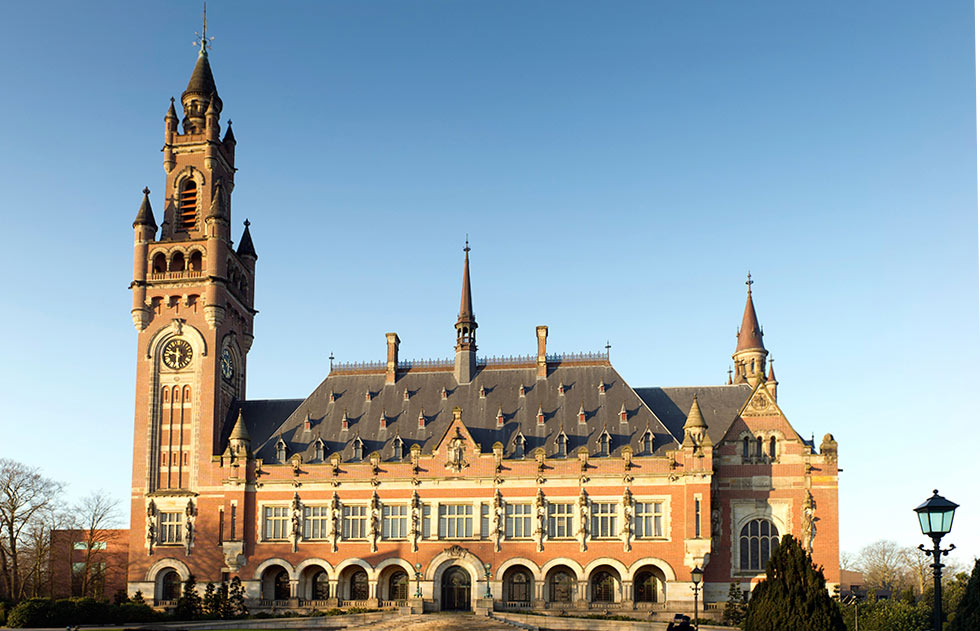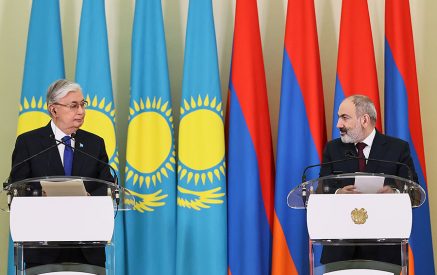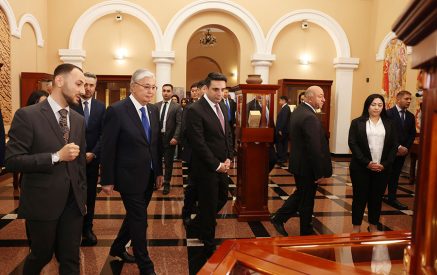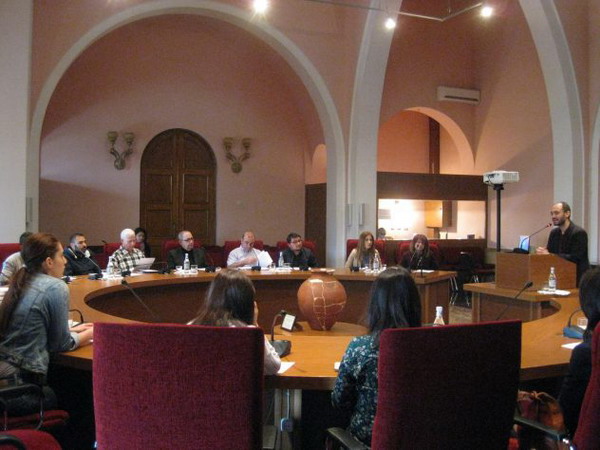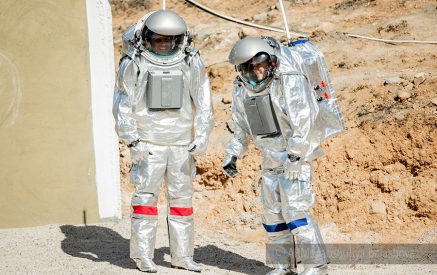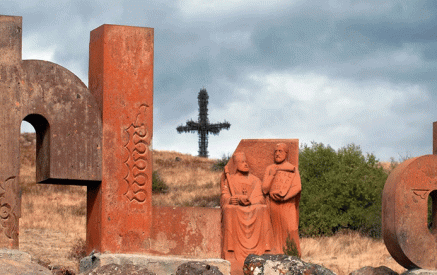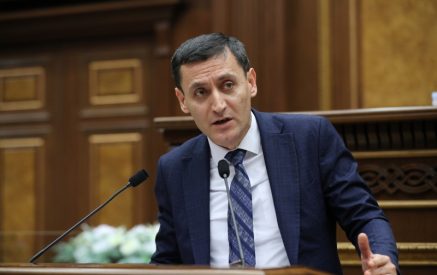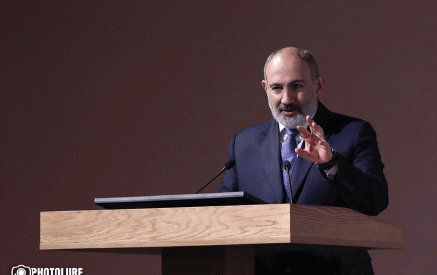The Armenian Weekly. YEREVAN (A.W.)—Some of the world’s leading experts in the field of Diaspora Studies—a subject to which Armenians are no strangers—convened in Yerevan on April 3, for a one-day conference on diaspora communities, how they evolve, and what they bring to the societies where they form. The event was organized by Aykut S. Ozturk, a PhD candidate at University College London’s Department of Anthropology.
The choice of Armenia as a venue for this event was significant according to Ozturk, a Hrant Dink Foundation fellow who currently lives in Armenia and conducts research at the Department of Diaspora Studies of the Institute of Archaeology and Ethnography (IAE). “In Armenia, obviously, for historical reasons, ‘diaspora’ is a very ‘established’ term,” he told the Armenian Weekly. “I mean there is even a Ministry [of Diaspora]. Jewish and Armenian experiences of diasporization and re-diasporization are often taken as the classic examples. But the end of the Cold War led to a ‘diasporic turn’ in both social sciences and also for the many migrant countries around the world and researchers tried to understand extended histories and experiences of dispersion and mobility through diaspora fieldwork and many dispersed communities claimed the title of ‘diaspora.’”
At the conference, Ozturk wished to stress that there is a multiplicity of definitions in the wider world—both in academia and the “everyday level.” “But in Armenia I sense the word is taken too literally. There is no one united single ‘Armenian Diaspora’—as the diaspora has emerged in different waves of dispersion, and also the ‘centers of gravity’ are changing,” he said.
Ozturk’s interest in Diaspora Studies has a long and rich background. Previously a Master’s student at University of London’s SOAS in Migration and Diaspora Studies, his doctoral research now focuses on the daily encounters between Istanbul Armenians and Armenian migrants from the modern Republic of Armenia. He detects the main dynamics of relationships and community making in contemporary Istanbul, and has conducted his research in three Istanbul neighborhoods, as well as in Gyumri and Vanadzor, with migrants who have come back. He even performs fieldwork in the transitional spaces, like in the buses connecting the two countries (which exist despite the closed border). At IAE, Ozturk is continuing his work in the field, researching the “transformation of Armenia-Diaspora relationships after emergence of Armenia as ‘an accessible homeland.’”
One such complex situation was presented by Hrag Papazian, a PhD candidate at the University of Oxford, who spoke about Armenians living in Istanbul and the variety of classifications the community has for defining itself (his PhD research topic). The debate on whether Armenians in Istanbul are a diaspora or not is quite deep-rooted, and has even led to the need of having conferences on the topic, where certain representatives expressed their opposition to being called “diasporans.”
Papazian formulated his thesis following numerous interviews with Istanbul-Armenians, some of whom felt themselves a diaspora and consider historical towns in the Eastern part of Turkey (known in Armenia as Western Armenia) as their homeland; others rejected that they are a part of the Diaspora, and consider Istanbul their home; and a third group falls somewhere in between, not believing themselves to be Diasporan, yet not feeling themselves quite at home in Istanbul, either.
More – see on The Armenian Weekly

